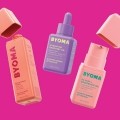P&G wields its power over Satanism rumors
have been ordered to pay a total of $19.25m in damages to Proctor
& Gamble for spreading false rumors connecting the consumer
goods giant to Satanism.
The ruling by the Federal District Court in Salt Lake City, Utah, stemmed from a law case first brought about in 1995, and is one of several the company has filed since rumors linking the company's logo to Satanism started circulating in the early 80s. "This is about protecting our reputation," said Jim Johnson, P&G's chief legal officer. "We will take appropriate legal measures when competitors unfairly undermine the reputation of our brands or our company." A Federal judge had originally dismissed the lawsuit involving Amway back in 2003, after a panel of judges had ruled that the rumors were not defamatory, but P&G had the case reinstated after a further appeal. Court documents show that the origin of the Satanic rumor at Amway came from a message that was forwarded through the company's common phone-message system to thousands of customers. Amway claims it was quick to quash such rumors and put out repeated retractions after the message was leaked by the distributors. "Despite the public apology, P&G has spent 12 years destroying their lives," Kate Makled, spokesperson for Amway's parent company Alticor, said in an interview with the Associated Press. "P&G is a $68 billion company. What they got out of this case was what they could earn in about 2 1/2 hours. We think that's shameful." The company's law representation had based it lawsuit on the Lanham Act, which prohibits unfair competition and false claims or accusations. P&G has continued to be proactive in defending its business name and its brands, with a number of high profile lawsuits being successfully fought last year to protect brands in the feminine care, oral care and beauty business area. Last September the company announced a lawsuit against HABA-Davion, claiming that the company had infringed trade dress and trademarks involving several P&G deodorant brands. And in early August the company also announced another lawsuit a against a product line manufactured by Perrigo New York, which the cosmetic giant claims closely imitates its core Olay brand. P&G, along with other leading global consumer goods companies, fiercely protects its brands. In any one year it issues hundreds of lawsuits worldwide, but is particularly active in the US market, where infringement laws are most fiercely protected.
















